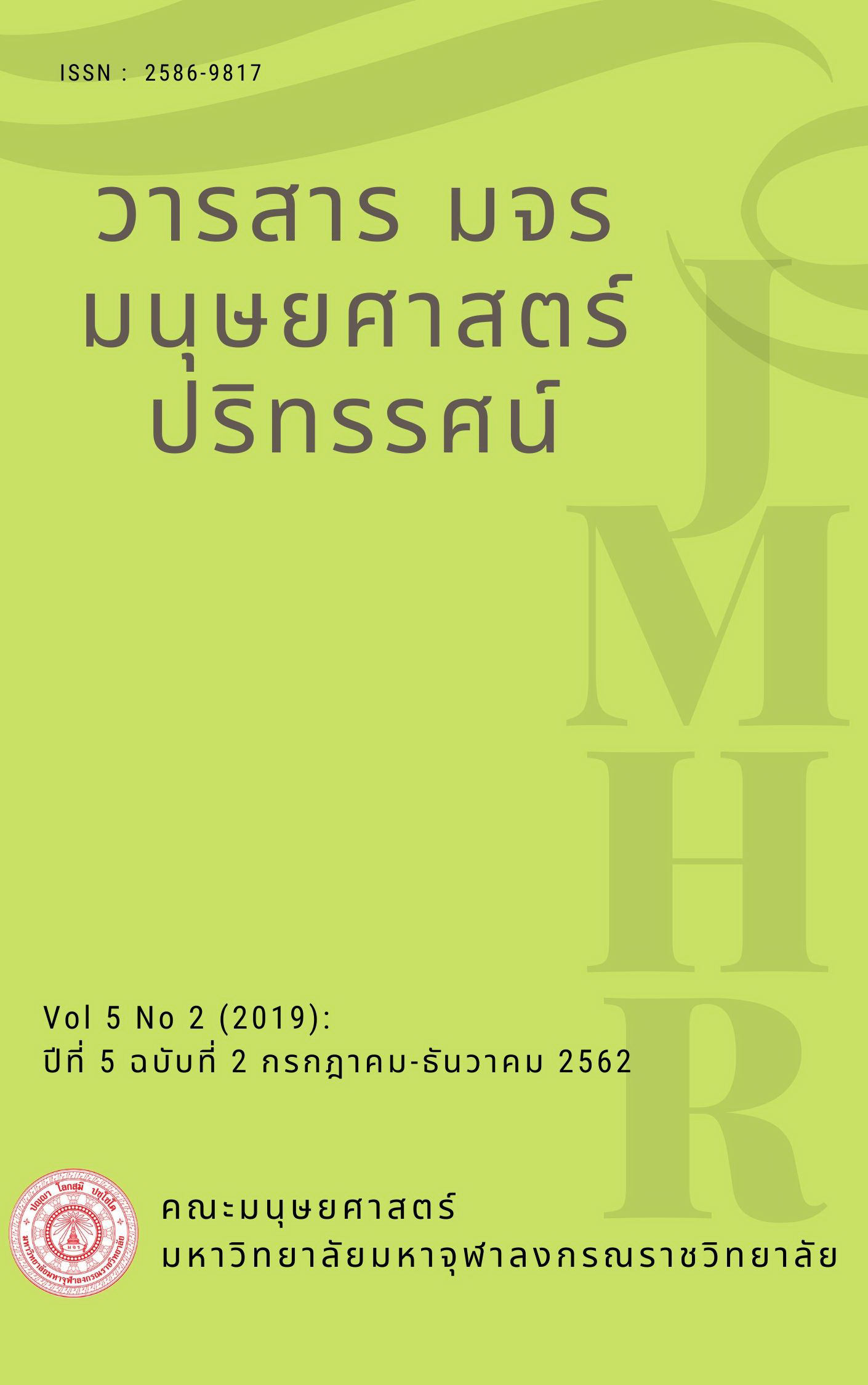สมรรถนะ : การพัฒนาตนเองของพนักงานรักษาความปลอดภัยก้าวทันการเปลี่ยนแปลงในยุคไทยแลนด์ 4.0
คำสำคัญ:
สมรรถนะ, การพัฒนาตนเอง, พนักงานรักษาความปลอดภัยบทคัดย่อ
สมรรถนะ : การพัฒนาตนเองของพนักงานรักษาความปลอดภัยเพื่อก้าวทันการเปลี่ยนแปลงในยุคไทยแลนด์ 4.0 บทความนี้ ได้มุ่งวิเคราะห์ถึงแนวทางการพัฒนาตนเองของบุคลากรให้มีสมรรถนะและประสิทธิภาพในการปฏิบัติงาน จากการศึกษาเอกสารและการแลกเปลี่ยนเรียนรู้อย่างมีส่วนร่วมกับผู้บริหารธุรกิจรักษาความปลอดภัย ได้รับรู้ถึงสมรรถนะของพนักงานรักษาความปลอดภัยที่ยังขาดความรู้ ความเข้าใจ ในการปฏิบัติงาน ให้ได้ตามมาตรฐาน
การพัฒนาตนเองคือ การกระทำที่เสริมสร้างความรู้ ทักษะ ความสามารถ และคุณลักษณะต่างๆ ให้แก่ตนเอง เพื่อช่วยเพิ่มสมรรถนะในการปฏิบัติงานของพนักงานรักษาความปลอดภัย โดยอาศัยวิธีการ กระบวนการ และขั้นตอนต่าง ๆ ที่อาจจะมีทั้งในกรณีที่กระทำด้วยตนเอง หรือได้รับการสนับสนุนจากองค์กรด้วย วงจรการพัฒนาตนเองประกอบด้วย 4 ขั้น คือ 1) การวางแผน 2)การนำไปปฏิบัติ 3) การติตตาม และ 4) การดำเนินการ จะเห็นได้ว่า มนุษย์ทุกคนเกิดมาพร้อมกับความดี มีคุณค่าในตนเอง มีความสามารถที่จะเป็นผู้นำตนเองได้มีแนวโน้มที่จะพัฒนาตนเองตามสภาพที่เป็นจริงตรงกับที่ Roger ได้อธิบายไว้ ส่วนสมรรถนะการพัฒนาตนเองของพนักงานรักษาความปลอดภัยเพื่อก้าวทันการเปลี่ยนแปลงยุคไทยแลนด์ 4.0 ประกอบด้วย ความมุ่งมั่นในงาน ความอ่อนน้อมถ่อมตน ความคิดริเริ่มสิ่งใหม่อย่างสร้างสรรค์ ความเอาใจใส่คุณภาพ ความใฝ่ใจเรียนรู้ ความมีจิตสำนึกของการทำงานเป็นทีม การมีความยืดหยุ่นและปรับตัว
เอกสารอ้างอิง
สุธินี ฤกษ์ขำ.(2554). การพัฒนาทรัพยากรมนุษย์ในภาคเอกชนไทย. วารสารวิทยาการจัดการ. 28(2), 1-13.
วรรณวิสา แยมทัพ. (2558). การพัฒนาชุดฝกอบรมสมรรถนะวิชาชีพพนักงานรักษาความปลอดภัย. (ปรัชญาดุษฎีนิพนธ์, บัณฑิตวิทยาลัย มหาวิทยาลัยรามคำแหง).
สุรพัฒน มังคะลี. (2557). การพัฒนาโปรแกรมฝกอบรมสมรรถนะหัวหน้าชุดปฏิบัติการในธุรกิจด้านการรักษาความปลอดภัยในประเทศไทย. (ปรัชญาดุษฎีนิพนธ์, บัณฑิตวิทยาลัย มหาวิทยาลัยรามคำแหง).
Boydell, T. (1985). Management self-development: A guide for managers, organizations and institution. Geneva: International labour Office.
Maslow, A. H. (1954). Motivation and Personality. New York: Garper & Row.
Megginson, D. & Pedler, M. (1992). Self- development: a facilitator’ guide. London: McGrawHill.
Míriam Porras and Àngels Tugores. (2019). PDCA cycle. สืบค้น 15 กุมภาพันธ์ 2562, http://cisterpearls.blogspot.com/2016/04/session-2.html.
Ozcelik,G. and Ferman, M. (2006). Competency Approach to Human Resources Management: Outcomes and Contributions in Turkish Cultural Context. Human Resource Development Review.
Rogers, C.R. (1961). On becoming a person. Boston: Houghton Mifflin.
Rogers, C.R. (1951). Client-centered therapy: Its current practice, implecations, and theory. Boston: Houghton Mifflin.
Roger, C.R. Simply Psychology. (2019). สืบค้น 15 กุมภาพันธ์ 2562. จาก https://www.simplypsychology.org/carl-rogers.html.
Boyatizis, R.E. (1982). The Competent Manager. New York: McGraw-Hill.
Spencer, M and Spencer, M.S. (1993). Competence at work: Models for Superiors Performance. New York: John Wiley & Sons.






